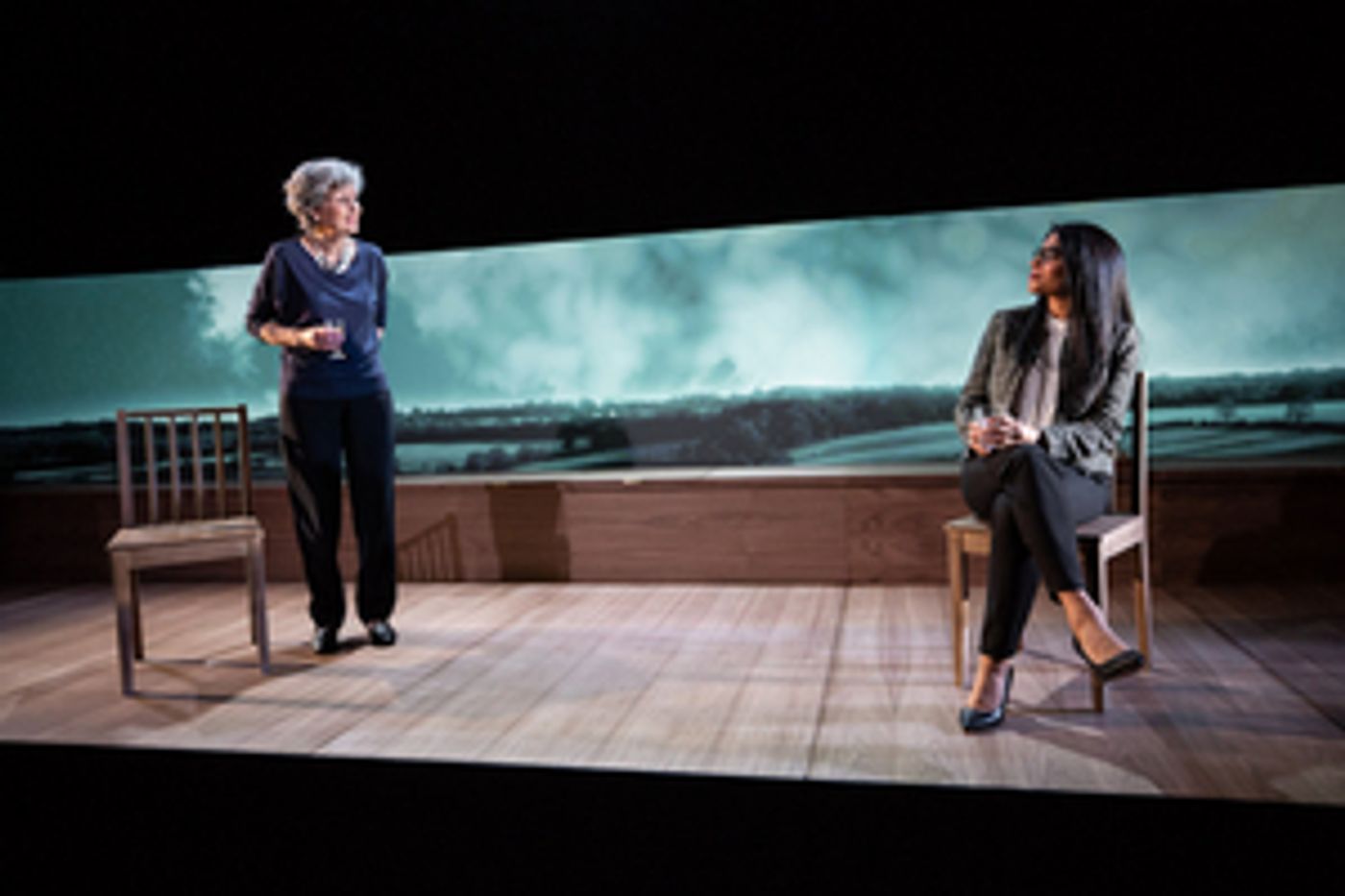Review: BLOODY DIFFICULT WOMEN, Riverside Studios
Tim Walker explores the misogyny experienced by Theresa May and Gina Miller in their post-Brexit vote battle.

![]() Let's rewind to 2016. The fires of Brexit are being stoked left and right and the discourse is rife everywhere, the news swarm with opinions and facts.
Let's rewind to 2016. The fires of Brexit are being stoked left and right and the discourse is rife everywhere, the news swarm with opinions and facts.
Theresa May is about to go from Home Secretary to Prime Minister. Kenneth Clarke is being interviewed by Sky, he smirks through his opinion of May and ends it with "Theresa's a bloody difficult woman, but you and I [Michael Rifkind, whom he was talking to] worked for Margaret Thatcher".
This is the anecdote that titles Tim Walker's new play about the sparring between May and Gina Miller, who took the government to court over their authority to trigger Article 50 without any approval from Parliament after the Brexit referendum.
At the risk of sounding difficult, the piece is merely average. It would love to be an insightful look behind the closed doors of Number 10 and the Millers' home while showing the hidden gears of modern politics, but it's a succession of facts, a cautionary tale on misogyny and the power of the press written by someone whose roots are in journalism. It's too clinical and too superficial to be of any relevance now. It also lacks the dynamic to be a great political play and the intensity of good drama. The audience leaves the theatre knowing exactly what they knew before they entered it.
Stephen Unwin places the action on a thin, sleek stage (designed by Nicky Shaw) backed by an equally long screen that sets the characters in time and place. The cast sits on a bench upstage (although "upstage" is a strong word here given the width of the space) when they're not actively performing, usually looking severe and pensive. The scenes are divided by the cathartic jingle (sound design by John Leonard) we associate with a news broadcast or the nail-biting moments of a high-stake game show. It's all quite Brechtian, if you will.
Amara Karan's Miller and Jessica Turner's May introduce themselves at the very start, establishing that their differences are only surface. Where Walker strives to portray them as women first and foremost, they don't come off as truly genuine. Basically, it's very clear that they're penned by a man. He seeks their relatability, writing glimpses of their personal lives: May asks her husband Philip to take the bins out and Miller's is shown taking care of the kids while she's busy with the case.
The protagonists are surrounded by men, just like their real-life counterparts were. Graham Seed is a chummy Sir Hugh Rosen, who comes onto civil servant Max Guilden (Calum Finlay) shamelessly. Miller's husband Alan (usually Edmund Kingsley but performed by Simon Harrison on the night we reviewed, who saved the day script-in-hand when Kingsley was suddenly ill) questions his wife on her motives and worries about her safety.
Andrew Woodall is Paul Dacre, former editor of The Daily Mail and here shown as the real puppet master of British politics. He controls the women's images and their public perception, but Walker still strives to make him and his newsroom assistant (Finlay again) the comedic relief of the piece. Dacre is an expert in swearwords and the other only speaks in cockney rhyming slang. It's funny the first time, but overdone when every scene is a déjà-vu of c-and-f-words blindly fired at everything in sight.
While Walker's script is generally very quick, the more serious dialogue ends up feeling rather thick and syrupy when it sits side by side with the more humorous bits of the play. It also lacks the complexity needed to understand the ramifications of Miller's actions. The women address the audience in brief monologues that state the loneliness and difficulties of a toxic, male-dominated field. They're stifled and silenced by men, if not totally manoeuvred by them. Once they finally meet at May's Maidenhead home in the present day, the former PM opens up and shares that she was never allowed to be the Prime Minister she wanted. Miller remains elusive, and the blame is eventually put on men.
Boris Johnson features throughout as the unnamable, dumb foreign secretary, and Walker even hints at partygate at the very end. The jabs are enjoyable, but stay as tongue-in-cheek winks instead than concealing any sharp critique - much like everything else in the production. Walker's May and Miller confirm the misogynistic hardships that come with being a woman in power. But we already knew that and, dare I say, we don't really need a man to explain it, do we?
Bloody Difficult Women runs at Riverside Studios until 26 March.
Photo credit: Mark Senior
Reader Reviews

Videos

